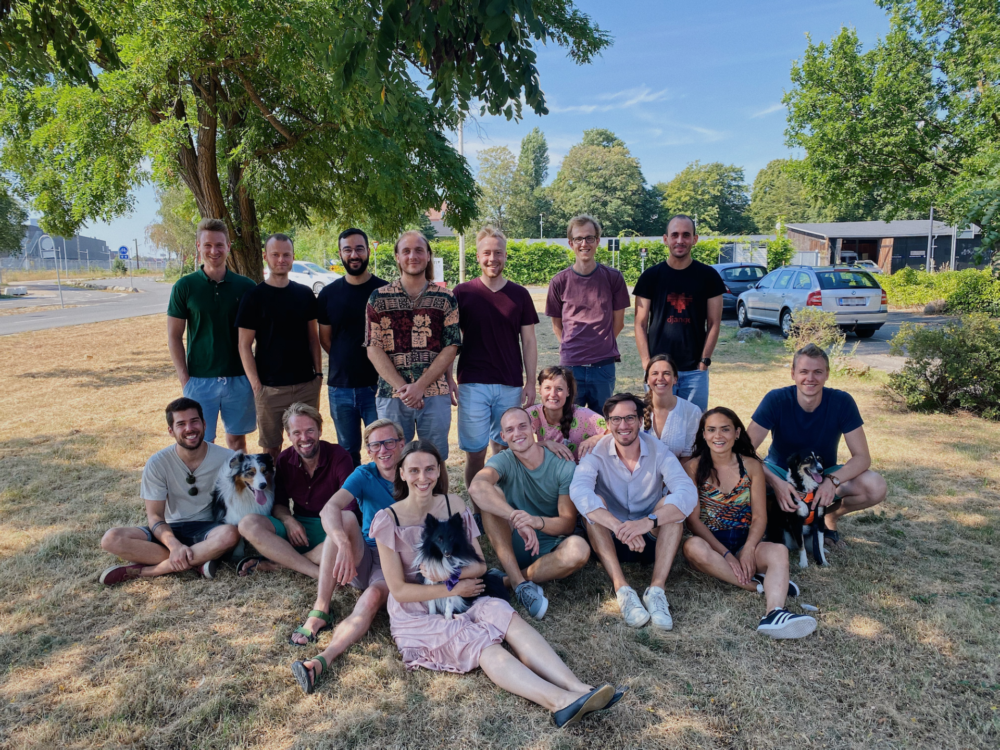Plant Jammer, a startup building what it calls a “digital chef” that creates personalized plant-based recipes for home cooks, recently raised €4 million ($4.7 million) in funding.
The lion’s share of the capital came from Denmark’s state investment fund, Vaeksfonden, and two giants of German manufacturing – food processor Dr. Oetker and domestic appliances maker Miele. The latter is investing via its early-stage venture arm, Miele Venture Capital.
Christian Zangs, managing director of Miele Venture Capital, told AFN that Plant Jammer had been trialed in concert with Miele’s internet-of-things ‘smart kitchen’ appliance prototypes. Describing the startup’s combination of AI and recipe creation as “unique and functional,” Zangs added that his team expect the tech to be “a core pillar in the connected kitchen of the future.”
Core pillar of the ‘connected kitchen’
Explaining his team’s technology to AFN, Plant Jammer CEO Michael Haase recalled his team’s journey from “literally just an Excel spreadsheet” to a user-friendly software platform applying AI to existing databases of food and flavor science.
According to Haase, what this enables is a way for people to discover new food combinations that shift their diets to more inventive, nutritious, tasty, and sustainable plant-based dishes, all while improving their culinary skills.
He also enjoys how the app inverts conventional online recipe decision making. Instead of the user picking a recipe and asking, “what ingredients do I need?”, the app prioritizes what’s already in the user’s larder or fridge, then suggests creative plant-based combos that drive down food waste.
This approach, Haase said, “wasn’t one of those eureka moments in a bath.” Rather, the idea came after time spent on the sustainability desk at business consultants McKinsey & Company, where he spotted a gap for sustainable personalized menu creation. He left to launch Plant Jammer in Copenhagen in 2016.
“Traditional sustainability is often supply-driven where, for example, factories produce plant-based meats, electric cars, or more effective power plants,” said Haase.
Plant Jammer, by contrast, works on shifting demand, providing end consumers with what he calls “the inspiration and tools they need to make a pro-active choice, to enable them to break habits and create a greener lifestyle – and to share their experience with their friends.”
Automating and democratizing culinary imagination
Plant Jammer could also be a good shortcut to greater success and exploration for the untrained chef, Haase reckons. “The premise of everything we do is that we want to make it easy for everyone to cook,” he said. It’s a view shared by another recipe discovery platform from the UK called Whisk, which last year was acquired by Samsung Next, the innovation unit of Samsung Electronics.
Personalized recipes are also taking off in restaurant tech as well, with companies like Singapore’s Ebb & Flow Group launching Wrap Bstrd, a centralized dark kitchen using AI to recommended filled flatbreads.
While Plant Jammer is trying to reduce food waste by finding ways of using up the last of those stray fridge cabbages or sagging eggplants, Gousto is working to make sure that extra eggplant never arrives; the UK startup’s mealkits are dispatched to customers in precise portions for the number of people eating dinner.
It is hard to see one approach ultimately vanquishing the other here, as both appear to suit different personalities and lifestyles. At a time of lockdowns and travel restrictions, both seem to be faring well, with Gousto hiring rapidly after closing a large round in April.
But it will be interesting to see whether this momentum shifts once (if!?) pandemic fears subside. In the meantime, Haase says Covid-19 has been a “boom time for the company.” With its 15 employees, Plant Jammer has now exceeded 100,000 users across Denmark, Germany, the UK, and the US.
White labeling, focusing on consumers
In another facet of its strategy, the startup has packaged its technology into an API accessible to anyone offering recipes on an app or website. In addition to the Plant Jammer consumer app, the company’s tech is helping empower the global green transition via a growing list of corporate customers. Haase does not see any need at this point to build out other offerings; rather, Plant Jammer will focus on improving the performance of its AI for the time being.
Empowering household kitchens to be more sustainable is a consumer-focused path that Eric-Alan Rapp, a partner at VF Venture — the direct investment arm of Vækstfonden — thinks the startup should stick to.
“Plant Jammer is helping people move towards plant-based diets and reduce food waste – two of the largest and most important issues on the planet that we have to address in order to reach our global climate goals,” he said in a statement. “Many people want to do this, but few people know how – or where to start.”




